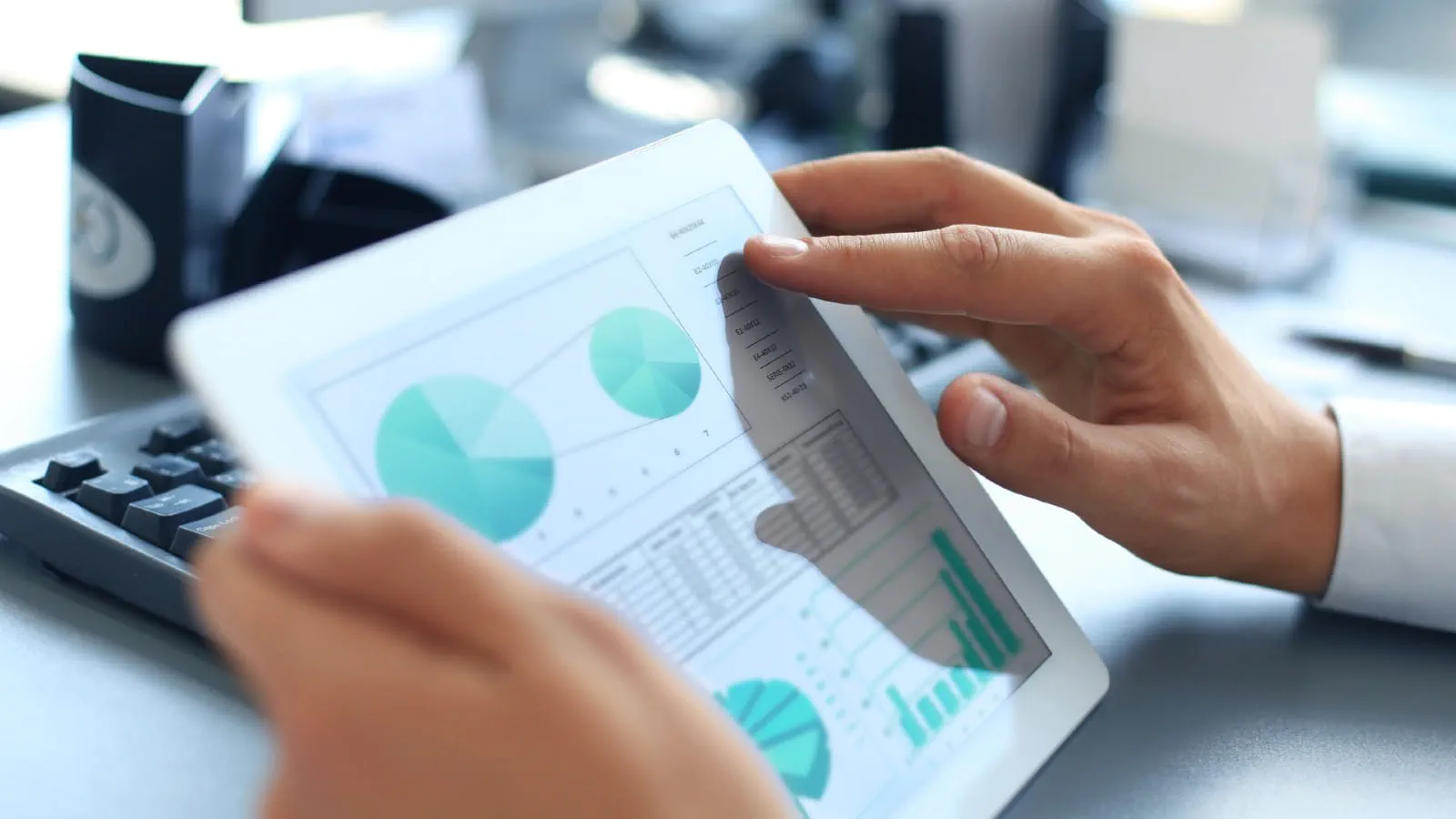Accountancy and finance jobs are not immune from the AI revolution – and although AI won’t necessarily take your job, you’re going to need new skills to thrive. We offer tips to ensure you have the right skills.
Predictions of artificial intelligence (AI) supplanting workers may have been overexaggerated as a growing body of research is highlighting its potential to boost productivity, introduce new skills and create new jobs.
Over the next five years, AI adoption in the US is expected to reach 67%, according to research by investment bank Evercore and incubator Visionary Future, implying that by 2028 Generative AI will be able to do 21% of each job’s function across the entirety of the US economy.
It found that jobs with higher levels of cognitive abilities tend to have a higher AI exposure. The analysis of 160m US jobs revealed that service sectors such as accountancy and finance are particularly vulnerable to disruption by AI, and yet full job replacement was unlikely.
Rather, the study found that effective implementation of AI could enhance efficiency in the service sector, which has historically been difficult to automate, potentially spurring productivity that has been depressed for more than a decade .
AI adoption will, however, take time and will be heavily influenced by the economic cycle, regulatory outlook, product commerciality and overall diffusion across sectors.
Michael Robert, an AI expert at gaming specialist GTA Boom, says: “While visions of intelligent algorithms totally replacing humans may seem straight out of a sci-fi blockbuster, the reality is far more nuanced. In my experience, AI is more likely to augment professionals rather than completely automate them out of a job.”
AI tools at accountancy firms and financial institutions are already streamlining financial tasks at unbelievable speed. Machines can analyse mountains of data to spot credit risks, sniff out potential fraud and optimise investment portfolios much faster than any human.
But Robert says these tools still lack contextual judgement. “Only a flesh-and-blood fraud expert has the nuanced critical thinking skills to investigate whether a crime actually occurred.
“While machines are wizards at spotting patterns, human oversight is still the secret sauce. It’s true that AI enables more efficient financial reporting and analysis. However, the key decisions based on those insights still require human expertise,” he says.
The Big Four firms have been employing AI tools increasingly over the past two years, and other firms of all sizes have also been adapting faster to such tools.
Cliff Orme, Management Information, Cloud Accounting and Systems Manager at DSG Chartered Accountants, says his firm uses three AI tools on a regular basis. Dext Precision helps ensure accuracy in financial reporting, by identifying discrepancies and inconsistencies in clients’ records. The firm also uses SYFT Analytics, a financial reporting tool that provides insights on clients’ management account figures and cross-references their performance to industry averages.
The firm also uses Microsoft Copilot, an intelligence assistant that works across various Microsoft 365 applications and helps draft and refine emails, generate and format documents, and create visualisations for complex data. “Using these AI tools supports us in offering more timely and accurate advice to our clients,” Orme says.
Indeed, accounting educational institutions are already recalibrating. Dr Maggie Cooper, Associate Professor in Accounting and Financial Management at Henley Business School, says: “AI will inevitably transform roles in accounting, both within management accounting and professional practice roles, with the same impact of VisiCalc – the original spreadsheet.
“AI offers similar opportunities. We need to ensure that accountants are ready to pivot – that they understand the positive benefits that will emerge and that they have the skills and aptitude to embrace the change that is on its way.
Cooper says universities are reviewing courses and the way that digital skills are taught, as well as using AI in classrooms to assess students.
“We need to make sure that our students enter the workplace with an enthusiasm for AI and the digital skills to make the most of it,” Cooper says.
Some jobs will indeed be replaced, but concerns have somewhat diminished over the extent of those jobs losses.
Dr Clare Walsh, Director of Education at the Institute of Analytics, says: “The replacement of current roles seems inevitable eventually, but the good news is that we still have time to adapt. We work with accountants to expand their current vision of what their job in the future could be.”
Walsh says the skills and deep knowledge of the businesses that accountants already work for make them ideally suited to the new roles appearing, such as reporting on mandatory carbon. “For accountants, learning to work with remote data through tools such as SQL and Time Series in R is a sensible step to protecting your employability. Historical reporting can easily be automated, but predictive analytics and decision-making is still a human-machine art.”
Accountants are already adapting to AI tools and learning new digital skills to enhance their work with these tools. But it seems that robots will not yet be taking over all finance jobs. The machines will instead partner accountants.
The extent of change that AI will bring to our world is still unknown, but we are beginning to see some positive impacts – and it is hoped that will only grow.

